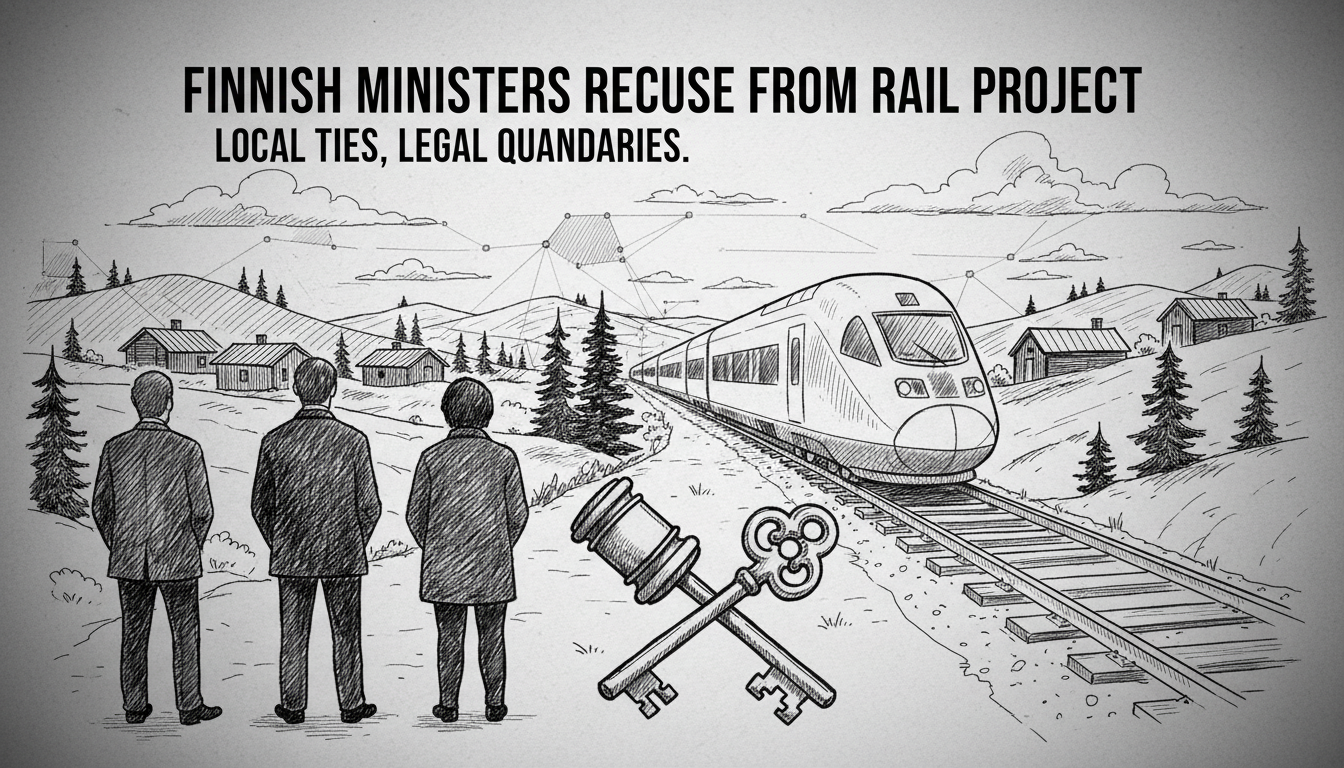Three senior Finnish government ministers announced they will recuse themselves from decisions concerning the Western Rail Line project. Prime Minister Petteri Orpo, Finance Minister Riikka Purra, and Education Minister Anders Adlercreutz all hold municipal council positions in cities that must approve the rail agreement. The ministers serve as city councilors in Turku and Kirkkonummi while simultaneously holding national government positions. Both municipalities face crucial votes on the Western Rail Line share agreement starting this Friday.
Legal experts question the validity of these recusals. Olli Mäenpää, emeritus professor of administrative law at the University of Helsinki, called the ministers' plans unfounded. He stated that neither city council nor ministerial committee roles provide legitimate grounds for recusal in this case. The professor explained that recusal requires direct personal benefit from a decision, which the Western Rail Line doesn't provide to individual decision-makers.
Mäenpää characterized improper recusal as a procedural error. He emphasized that political reasons or image concerns don't constitute valid grounds for stepping aside from decision-making processes. Council members cannot arbitrarily excuse themselves from votes without solid legal justification, he noted. In practice, only genuine obstacles like illness should prevent participation in decision-making.
The situation creates practical complications for government operations. In ministerial committees, each political party typically requires representation for the committee to maintain decision-making authority. Adlercreutz's recusal could disrupt this balance within the education minister's committee. Officials confirmed they are examining procedural arrangements to address this challenge.
This case highlights the complex intersection of local and national governance in Finland. Ministers often maintain local political roles while serving in national government, creating potential conflicts when major infrastructure projects affect their constituencies. The Western Rail Line represents a major transportation initiative connecting Helsinki with surrounding municipalities, making these decisions particularly significant for regional development.
Similar situations have occurred in past Finnish infrastructure debates, though rarely involving three ministers simultaneously. The timing raises questions about political strategy ahead of municipal decisions on the rail project. Some observers suggest the recusals might reflect concerns about public perception rather than legal requirements.
The Western Rail Line project has generated substantial debate about transportation policy and municipal financing across the Helsinki metropolitan area. The recusal decisions come as municipalities begin formal consideration of the share agreement approved last week. The outcome could influence future infrastructure development patterns throughout southern Finland.
What happens next with Finnish rail infrastructure decisions remains uncertain. The ministers' recusals could set precedents for how dual office-holders approach major projects affecting their constituencies. Legal experts continue debating whether these actions represent proper procedure or political maneuvering.

